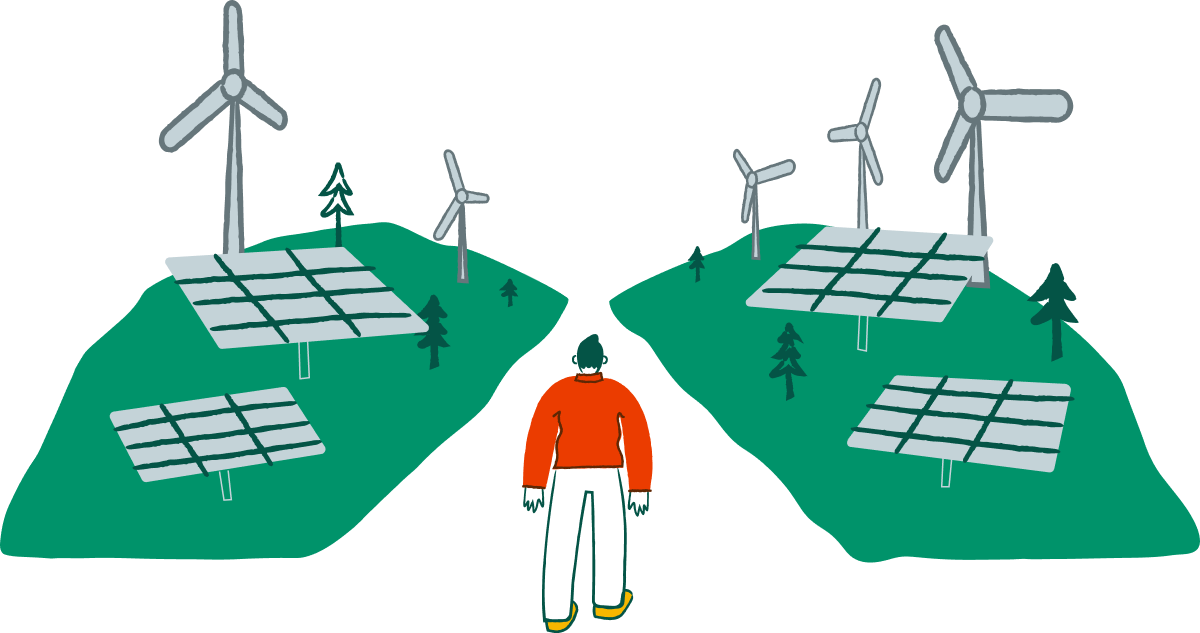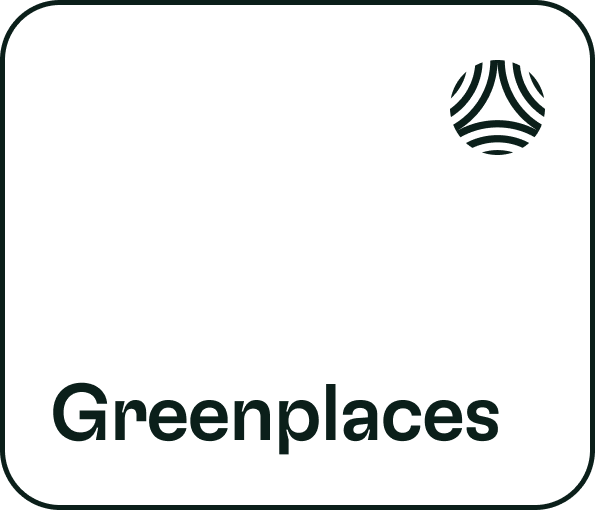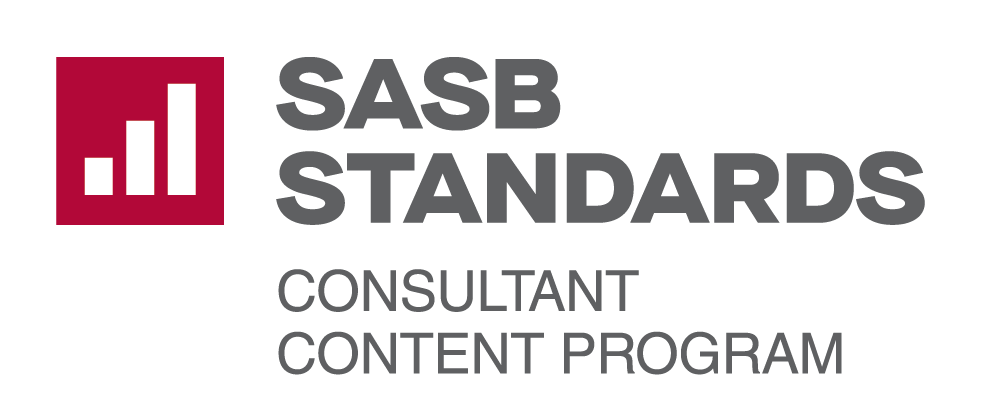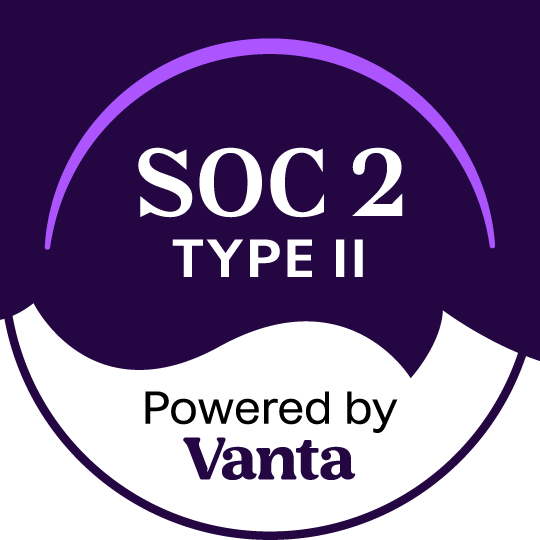We’re on a mission to democratize sustainability

Creating One. Authentic. Community. For All.
We believe that in order for sustainability to work, it has to be good for business and good for the planet. We believe that we can’t reach our climate goals without involving every business, and the mass market of everyday businesses represent the biggest opportunity to positively impact the planet. We believe sustainability is good business, for everyone. And, we believe in open source sustainability–making sustainability accessible to all.
Our beliefs inform everything we do–from the solutions we build, to the resources we provide, to the community and team we foster. We’re creating a future where sustainability is accessible, practiced across all businesses, positively impacting bottom lines and the environment. Join us in shaping the future of sustainability.
There’s a lot that goes into why and how we’re democratizing sustainability. Read about the rise in market demands, that opportunity and need for sustainable business for the masses, and Greenplaces’ commitment to making “good for business, good for planet” sustainability accessible to all.
The state of the market: Changing climate, changing business climate
Climate change is real and we will all have to do our part to address it. For the business community, the ripple effects of our rapidly warming planet are already showing up in everything from supply chains to regulations. Modern business practices are hurriedly responding to meet climate challenges.
In addition to climate challenges, business leaders today are under an enormous amount of operational and business pressure–facing declining profitability (with inflation and supply chain challenges), volatile markets, and rapidly evolving regulation. Importantly, three key stakeholders are driving corporate sustainability and climate action, and ultimately shaping the future of business: investors, customers, and employees–using sustainability to inform how they invest, what they consume, and where they work.
This can feel like a lot, as the change is fast and demands are coming from all directions:
Sustainability is becoming a standard business requirement, but is difficult to justify and prioritize in the face of a laundry list of demands. While this is a net positive for the environment, for business owners it means handling all of the above complexities while taking on the additional work of understanding and reducing their environmental impact. And, despite rising requirements and expectations, most sustainability teams and budgets remain small and increasingly squeezed as businesses are forced to make cuts and focus on the bottom line.
The Takeaway
Businesses desperately need a practical, straightforward sustainability solution, and it has to be good for business and good for the planet. The approach to modern sustainability has to change.
“I empathize with business leaders. On one side you’re facing declining profitability, and on the other you’re staring down ESG requirements and climate regulation. Not to mention, topline pressure as customers shift their spend to reflect values. We built Greenplaces to tie business and sustainability objectives together, making it easy for businesses to reduce their carbon footprint and increase their bottom line.”
Alex Lassiter, CEO, Greenplaces
The state of sustainability: Sustainable business is top of mind, but out of reach
Sustainability is becoming critical business
We are at the very beginning of a big shift in how we define and practice sustainability. Just as HR departments have grown from managing health plans and running payroll to a more holistic approach that includes DEI and mental health initiatives, the umbrella of “Sustainability” is ever-expanding. It has rapidly evolved from a mere bullet point in a CSR plan, a decade ago, to sweeping Net Zero commitments, ESG-driven investment, and holistic business models and strategies, today.
We’re on the precipice of seeing Sustainability as an integral part of every business–woven into practices across functions, cost centers and supply chain, culture and brand–informing and being informed by every team, decision, and goal. The practices and potential impact of holistic sustainability extend well beyond carbon accounting and reporting, which are merely a first step. The tent of sustainability spans energy and utility efficiency, supply chain and sourcing, ESG and DEI policies and practices, operations, communications, and so much more. When a company is operating sustainably, they are operating efficiently and effectively across ALL business categories, driving outcomes that benefit both their bottom line and the environment.
The future is moving beyond viewing sustainability as a cost center, seeing it as a smarter way to do business–translating sustainability into ROI. Sustainability should be good for business and for the planet–a practice the corporate giants have already embraced.
The real untapped opportunity is in the masses
The concept of “good for business, good for the planet” has been around awhile, but it’s only been effectively practiced by a few. Industry giants like Meta, Microsoft, and AT&T were early adopters and pioneers of the win-win approach to sustainability–using sustainability to address business issues or seize on opportunities that both tackle their carbon footprint and benefit their bottom line. To date, the approach has been largely reserved for the Fortune 500 with an abundance of resources to invest in expensive consultants, custom-built tools, and carbon accounting software.
While they account for the majority of sustainability initiatives, the Fortune 500 only account for about 27% of worldwide emissions. (10) Medium and small businesses (or the mass market) own a major stake in the other 73% of global emissions–nearly 27 billion tons of CO2e. (11) Which means, collectively, everyday business leaders can have an outsized impact in the fight against climate change and reducing global emissions.
The mass market represents a huge untapped opportunity for impact and efficiency. If everyday businesses, across industries and business models, adopted the good for business good, for planet approach, they could do their part to greatly reduce global emissions, help shape the future of sustainable business practices, and improve their bottom line. But massive overhauls and deep pocket investments aren’t an option–the approach has to be made accessible and easy.
“We realized that businesses like Amazon, Starbucks, and Meta were achieving sustainability goals while also saving millions in operational efficiencies. Shouldn’t every business have access to these sustainable strategies?”
Alex Lassiter, CEO, Greenplaces
Sustainability feels hard and inaccessible
While most business leaders see the upsides of sustainability practices, putting them into action can feel remarkably intimidating, risky, and unattainable. We hear from leaders across industries, roles, and business models, and they all voice the same challenges to incorporating sustainability:
These common challenges are all easily addressable with the right resources, community, platform, and partner.
We’re making “good for business, good for planet” sustainability easy for all
In the face of evolving markets, regulation, and stakeholder expectations, shrinking budgets and profitability, and a whole new era of sustainability upon us, we know that businesses desperately need (and deserve) a practical, straightforward sustainability solution–and it has to be good for business and the planet.
We’re here to demystify and democratize sustainability. To make sustainability accessible and possible for everyone. To make it easy to adopt impactful sustainability practices and meet business and climate goals. To anticipate and exceed customer, investor, and employee expectations, to improve ROI, to enrich relationships, to make smarter decisions and reduce risk, to make a positive impact on the planet–all through sustainability.
How? We’re democratizing sustainability by building and supporting ONE, AUTHENTIC, COMMUNITY, FOR ALL–from the solutions we build, to the open source resources we provide, to the community of leaders we empower, to the team we nurture.
One
One platform, one robust sustainability organization, supported by one friendly team of experts.
Our all-in-one platform creates visibility and identities actionable insights across the full spectrum of sustainability–carbon footprint, energy and utility efficiency, supply chain and sourcing, ESG and DEI policies and practices, operations, communications–and hosts best practices and templates to help you take action in ways that are most impactful for your bottom line.
No matter what sustainability looks like for your business, we promise to make it easy, actionable, and impactful. Meet reporting requirements, achieve cost savings, win business and trust, engage employees, reduce supply chain risk, get certified, and more–all from one platform–no matter your goals or where you’re starting from.
Authentic
One size does NOT fit all. We’re breaking the rigid mold and supporting a personalized take on sustainability. Your size fits you.
We empower you to define and run sustainability that is unique and authentic to your business. Sustainability should maximize your emissions reduction opportunities, your operations and supply chain, your brand and culture, your customers and product, your goals, your bottom line. Sustainability should work for your business.
Community
Creating an Open Source Sustainability community with and for savvy sustainability leaders of all kinds.
No one wins when sustainability is a trade secret, which is why we believe so greatly in Open Source Sustainability–best practices, made for all, accessible to all. We foster a community of passionate sustainability leaders, across industries and brands, sharing wins and ideas and collectively shaping the future of sustainability. We nourish the community through inviting conversations and useful resources. And we do it all to enable everyone to do good for business and good for the planet.
For All
We build for ALL busy business leaders. No matter your business, team, role, or familiarity with sustainability concepts and jargon, we’re made for you.
You don’t have to be an expert, we’ll keep up with the latest and greatest for you. We bring value and insights for the whole company–from employees to execs, across all business functions. We support across all industries–from restaurants and hotels to tech companies, law firms, and service providers. We empower you to exceed expectations and communicate effectively with all of your stakeholders–customers, investors, and employees.
Sustainability is good business. Now. For all.
Everyone is invited to the future we’re building. We don’t care if you have a humming sustainability team that Patagonia would be proud of or have yet to start. We celebrate progress over perfection. Just get started.
Reach out! We’d love to help you define and grow sustainability practices that work best for your business, bottom line, and footprint.









